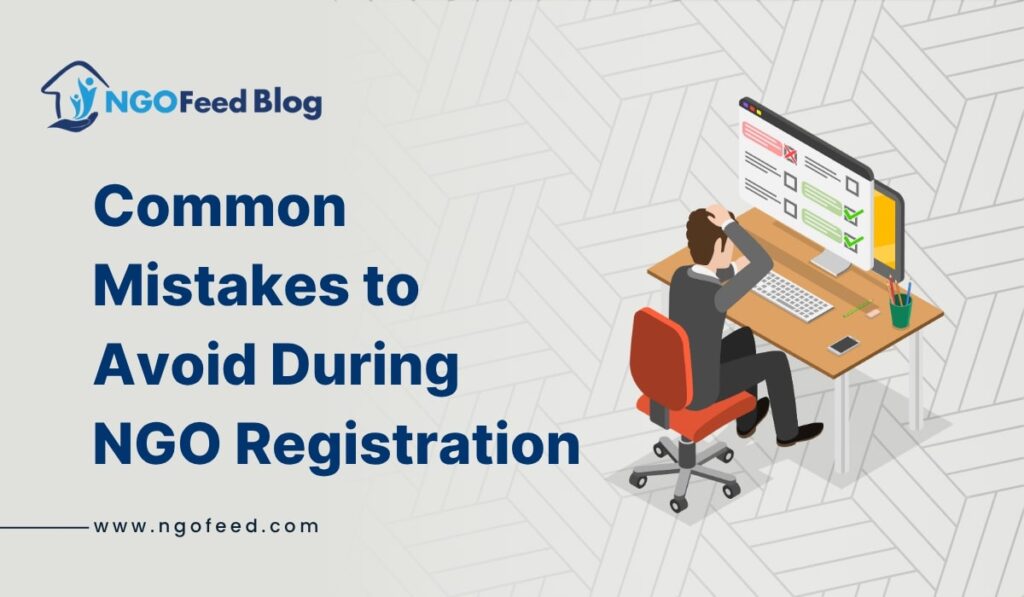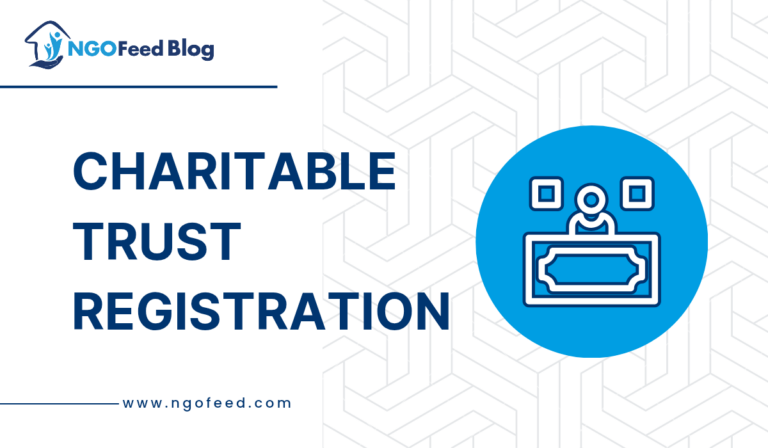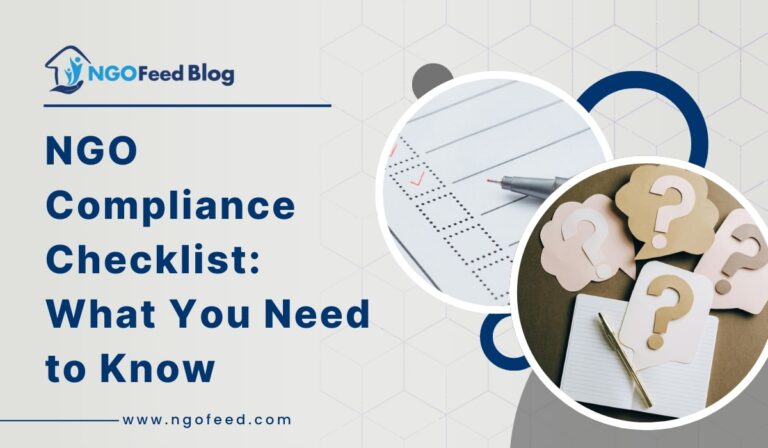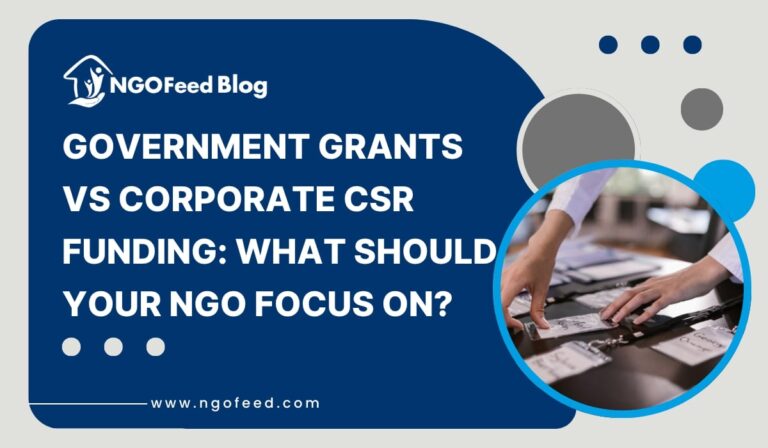Common Mistakes to Avoid During NGO Registration: The first way to create structured social impact through legal intervention is to register a Non-Governmental Organisation (NGO) in India. Nonetheless, most people doing it with good intentions end up making important errors in the process, usually because of poor information or rushed judgment. These are the errors that might cause the delay in registration, compliance problems, or even legal problems that might harm the further work of an NGO.
Failure to stipulate clearly the objectives of the NGO is one of the most prevalent pitfalls and the mistake that has an impact not only on the registration documents but also on the vision of the organisation in the long term. The same can be said about the inappropriate choice of the legal form of organisation: Trust, Society, or Section 8 Company, each of which is associated with a different set of controlling and functioning conditions. Founders will have the tendency to not complete important documentation, disregard statutory compliances like PAN, 12A or 80G registration and not keep the right financial records from the very outset.
Also, the use of poor or informal legal assistance may lead to permanent compromises. A lot of other NGOs do not take professional guiding seriously at this inception stage.
Being aware of them and ways of managing them properly, full-fledged future changemakers can rest assured that the registration of their Charity will go on smoothly and will be legal. The purpose of this article is to identify the most typical mistakes and give you some tips that can assist your NGO in India in choosing the right way to start.
Also Read: Cultural Appropriation Vs Cultural Respect in NGO Campaigns
Table of Contents
Common Mistakes to Avoid During NGO Registration – Choosing the Wrong Legal Structure
Among the most widespread and fatal errors in registering an NGO, it is possible to note the mistaken legal structure. There are various legal implications, governance models and compliance-oriented processes in which NGOs in India can be registered as either a Trust or a Society or a Section 8 Company.
The first-time founders end up utilising a structure because it is convenient or because it is a rumour without comprehending what may best sync with their long-term objectives. An example is that Trust is comparatively simple to establish and operate, but has limited adherence to the decisional flexibility as far as membership is concerned. Instead, societies suit community-based organisations and have democracy in their operations, but they need to hold regular elections as well as get registered by the state.
The most credible among the corporates and the international donors are Section 8 companies, as the set-up is more rigorous in terms of compliance because of the centralised registration and strict rules in governance of the firms in the Companies Act.
Selecting the wrong structure may jeopardise your access to funding, ability to do business in other states, or transparency. It can also complicate the process of transformation or reorganisation of your organisation in the future.
Also Read: FCRA Rules 2025: What Every NGO in India Must Know
To avoid such an error:
- Determine the type of work you do, the geographic coverage you should achieve and your means of payment.
- When that legal opinion is received, make the structure final.
- Get to know the nature of reporting and governance provisions.
Getting the correct decision in the initial screening will help in frictionless operations and trust among the stakeholders.
Common Mistakes to Avoid During NGO Registration – Incomplete or Incorrect Documentation
The other common pitfall during the NGO registration procedure is providing wrong or incomplete documentation. Authorities in government need to be satisfied with the legitimacy and purpose of a non-profit organisation by means of paperwork which needs to be accurate. Even the slightest mistake or oversight might cause its rejection or huge delays.
The various legal forms, Trust, Society or Section 8 Company, have categories of records to be maintained. An example of this is that a Trust deed should have a clear statement of the objectives, trustees, and the manner of operation. The societies must have a Memorandum of Association (MoA), Rules and Regulations, as well as a list of the members of the governing body. Section 8 Companies will have to file detailed records such as Articles of Association (AoA), financial statements and directors’ declarations.
Such errors may include:
- UNCLEAR POLICIES IN Governing documents
- Absent signatures or improper notary, Alfred Strasser found himself on the wrong end of a civil debt penalty.
- Disparities in the address verification or service-based documents
- The omission of affidavits or declarations where they are necessary
Also Read: Society Registration Process in India
To prevent these problems:
- It is a good idea to ensure that all forms and annexures are rechecked before submission
- Make sure documents are signed and attested according to the norms of law
- Vetting of documents should be done by a professional or a legal expert
- Save all the submissions and may say receipts to refer to them
Precision in documentation not only expedites the registration process but also creates a base of credibility and non-biased conduct upon which the future operations of your NGO can be run.
Ignoring Mandatory Registrations and Compliances
Among the most omitted errors of people starting NGOs is the neglect to recognise the necessity of these post-registration requirements and mandatory registrations. Registering your NGO is only the initial phase of the process to be fulfilled. Every organisation should also comply with other legal requirements and mandatory registrations to operate lawfully and successfully.
Depending on the nature of activities and their scope, NGOs may have to make the following applications:
- A Registration (to get tax exemption)
- 80G Certificate (to enable donors to avail of tax deductions)
- FCRA Registration (of acceptance of foreign contributions)
- PAN and TAN numbers
- Professional tax/ or GST/ or Shop and establishment registration (as the case may be)
Failure to observe such requirements may not only lead to the imposition of penalties but also inhibit your capacity to go into fundraising, hiring of employees, as well as cooperation with other institutions. An example is that without 12A and 80G, there is a possibility of losing the potential donors who want tax deductions.
NGOs are also required to keep proper books of accounts, file returns annually and have them audited. Failure to comply can cause legal investigations or result in the registration.
Also Read: Top 10 Government Schemes For NGOs
The following tips can help keep this mistake at bay:
- Visit an expert in law or in CA laws that deal with NGOs
- Keep a compliance calendar of all deadlines
- Be informed of changes in matters of regulatory requirements
- Use professional services, software to track and file reports
Having an attitude of compliance at the early stages will help your NGO gain credibility and have smooth operations in the future.
Lack of Professional Guidance and Legal Advice
The idea of starting an NGO can be driven by goodwill, but goodwill is not the only factor that ought to help you manoeuvre through legal compliances and registration in India. Failing
Consulting an expert (lawyer or other financial advisors) is one of the most significant and most frequent errors of new founders.
Registration of NGOs does not simply entail completion of forms. It will involve getting the proper legal structure (trust, society or section 8 company), drafting a proper memorandum of association, abiding by the tax laws and knowing the rules that apply to different states. When it is impossible to cope with all of that without professional assistance, mistakes are made, time is lost, or the application may be rejected.
Also Read: Benefits of Fundraising for Nonprofit Organizations
What is the reason behind professional advice?
- Your legal professionals assist you in selecting the most appropriate structure depending on what you want to achieve.
- Chartered Accountants will help you establish good financial ways of doing things, particularly the auditing and financial reports to come afterwards.
- Professionals can validate that your documents fall within the format and rules of the government.
- Lawyers prevent possible legal trouble or corruption in the future.
Any error in the early stage of the registration procedure may lead to some consequences in the long run. It can be costly in terms of time, finance and reputation as well as access to sources of finance.
Hint: It is advisable to have at least one in-depth consultation with a lawyer working within the budget you have, even in case of a small budget. Small professional advice at the beginning can help to avoid much trouble at the end.
Also Read: Role of UNESCAP in India
Frequently Asked Questions (FAQs)
1. Which is the most common error that is committed when registering an NGO in India?
Among the top 10 threats is the wrong legal structure (Trust, Society, or Section 8 Company) that is likely to influence the work of the NGO, the process of compliance, and access to funding.
2. Is it possible to create an NGO without professional or legal assistance?
However, although it can be done, it is not a good idea. The guidance provided by the professionals prevents documentation mistakes, non-compliance, and errors in processing the registration.
3. What are the necessary documents to get an NGO registered?
Basic documents are Memorandum of Association (MoA), rules and regulations or trust deed and other identity and address proof of founders, PAN card, and address proof of the registered office. The requirements can be different by the structure and written according to the state.
4. Can one enrol in 12 A and 80G after the establishment of NGOs?
Yes, in case the NGO wishes tax exemption of donations to donors with giving tax benefit to the latter, then it must register under 12A and 80G of the Income Tax Act.
5. What is the consequence when my NGO fails to comply with some post-registration requirements?
Penalties, withdrawal of tax exemptions and even loss of registration in extreme cases can be imposed on this due to failure in annual filings, financial audits or FCRA compliances.









